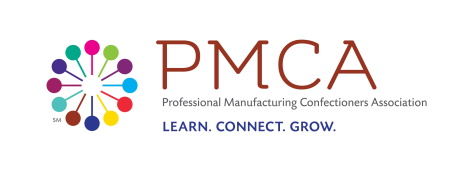Beyond the Basics Seminar – Go with the Flow: Practical Rheology in Confectionery Production

Neil Cunningham, Centre for Industrial Rheology, UK
Neil is the founder and CEO of the Centre for Industrial Rheology, which, since 2012, has grown to be one of the world’s most trusted and respected rheology laboratories, providing research services, contract sample analysis, training and consulting services.
Neil is a highly experienced consultant in the application of rheology and other soft-material testing techniques across a range of industries including foods and beverages, pharmaceuticals, healthcare and others. Since starting in the field in 1995 he has successfully carved a niche consulting for the world’s leading manufacturers — including companies such as Nestle, Pepsico, Cadbury and Danone — and has trained and advised thousands of scientific personnel in the principles and practical application of rheological profiling.
Neil has a reputation for his accessible, enthusiastic approach to rheology and his ability to convey seemingly impenetrable concepts to even the most non-technical person.

Erin Kuhn, Centre for Industrial Rheology, UK
Erin joined the Centre for Industrial Rheology around the beginning of 2020 as a technical sales executive predominantly looking after the personal care, household and food/beverage industries. Her role mainly consists of acting as an evangelist for the business and helping global companies to better understand the physical handling behaviors and sensorial properties of their products. Part of Erin’s responsibilities include reaching out to new companies, setting up technical conversations with customers as well as researching exciting and upcoming market trends.

Matt Schweizer, Jerome & Horner
Matt is currently a project manager at Jerome & Horner, a California-based design-build engineering firm specializing in the chocolate industry. He started his eight-year career with Buhler Inc., a market leader in chocolate manufacturing equipment, in the chocolate division as an apprentice. The three-year apprenticeship entailed technical courses at Dunwoody University and in-field training with the technical leader of chocolate mass production, Mr. Mike Furrer. Matt then spent a little over five years traveling North America visiting nearly all large-scale chocolate producers installing, commissioning and repairing chocolate manufacturing equipment. Being a customer service engineer with Buhler fulfilled his enjoyment of traveling, being that no chocolate is currently being produced in his home state of MN. Matt’s specialty is mass production, specifically dosing, mixing, refining and conching, including recipe development and optimization.
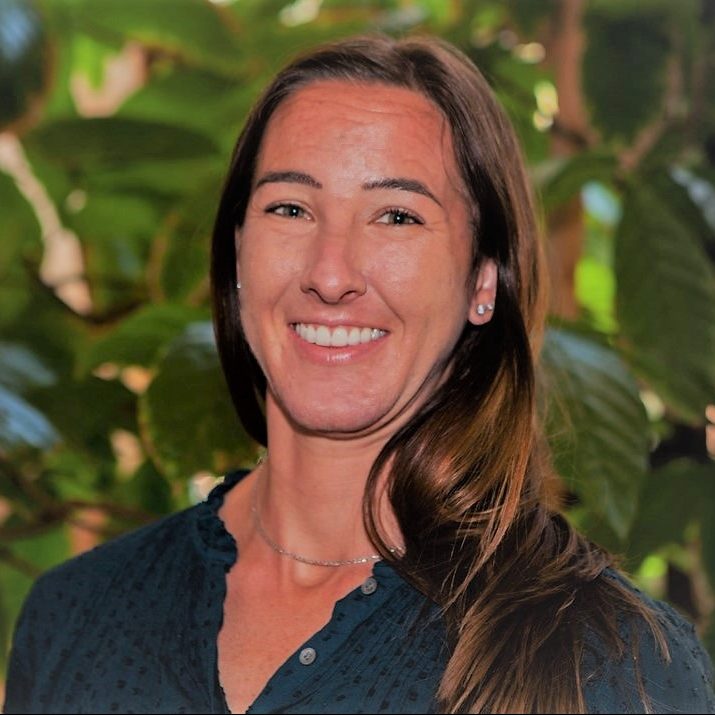
Rebecca Kuehn, Guittard Chocolate Company
Rebecca Kuehn is the R&D manager at Guittard Chocolate Company where she is responsible for realizing innovations in chocolate products and processing. With 10 years in the chocolate industry, she has led and contributed to new product launches, product and process improvements and production line startups, both domestically and internationally.
Introduced to the industry as part of the PMCA Student Outreach Program and while researching chocolate at the University of Wisconsin-Madison, Rebecca continued on, earning her M.S. in food science and technology from the University of California, Davis, where her studies contributed to fundamentals of chocolate bloom and oil migration through support from PMCA’s Research Grant. Now PMCA’s Western Regional Committee Chair, Rebecca is engaged in building the industry’s future, bringing people and organizations together.
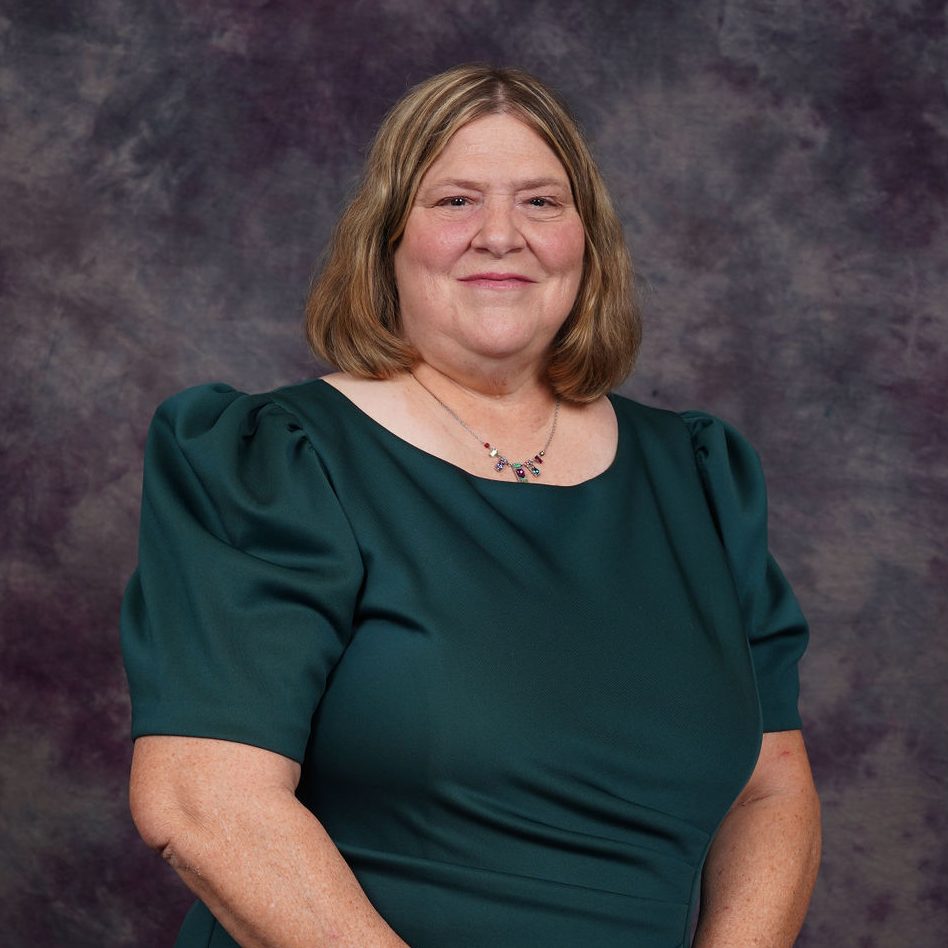
Pam Gesford, The Hershey Company
Pam is a staff scientist for The Hershey Company where she works in sweets and refreshment product development, developing mostly new Jolly Rancher and Twizzler products. She is an active member in the PMCA serving on the Program Committee. She has taught for the PMCA panning course, NCA panning short course and resident course as well as previously for the Triton College Confectionery Course. Pam was inducted into the Candy Hall of Fame in 2021.
Throughout her career, Pam has considered herself very privileged to work with and get to know the fine people who work in the candy industry. Pam began her career in the candy industry at Hershey Foods. Working in product development, she was involved in chocolate and non-chocolate confectionery products from bench-top concept development to production start-ups. Pam then went on to become ReTD manager for the former Herman Goelitz Candy Co., now the Jelly Belly Candy Company. She formulated new flavors for the Jelly Belly line as well as numerous other confections for the Goelitz Confections brand. She also was technical service manager for the food and confectionery division at Colorcon, where she provided technical assistance to customers and led the product development efforts for new specialty products. Pam was also technology manager for Perfetti Van Melle USA, Inc where she ran both ReTD and the quality assurance departments. Before rejoining The Hershey Company, Pam was a senior consultant with Knechtel, Inc. where she assisted clients with R&D, technical training and troubleshooting.
Pam graduated from Pennsylvania State University with a bachelor’s degree in biology. She also attended additional food science courses at PSU.
Tuesday Morning Technical Sessions

Farida Mohamedshah, NCA
In her role as senior vice president of scientific and regulatory affairs at the National Confectioners Association (NCA), Farida Mohamedshah oversees scientific and regulatory matters relevant to the confectionery industry. Farida leads the development of advocacy positions on food and nutrition policy, including food safety, food labeling, prop 65 and allergens, and helps NCA members to be compliant with current and proposed regulations. She oversees the association’s relationships with regulators and provides the association and its member companies with timely information on nutrition, food safety and other regulations that impact the manufacturing, distribution and sale of confectionery.
Before joining NCA, Farida was the director of food, health and nutrition at the Institute of Food Technologists, serving as IFT’s principal scientific and technical resource on food and nutrition policy issues. She has published papers in the fields of nutrition and food science and is a member of the American Society for Nutrition, Academy of Nutrition and Dietetics, as well as the Institute of Food Technologists. As a nutritionist, she worked on a GRAS dossier and reviews for health and structure function claims for nutrients and bioactive components.
Farida received a Bachelor of Science in home economics and a Master of Science in textile chemistry and clothing from the University of Bombay. She also received a Master of Science in human nutrition and food systems from the University of Maryland. She lives with her husband in Fairfax, Virginia.

Dr. Jonathan Deutsch, Drexel University
Jonathan Deutsch, Ph.D., CHE, CRC is a professor in the Department of Food and Hospitality Management in the College of Nursing and Health Professions at Drexel University and Director of the Drexel Food Lab. He is vice president of the Upcycled Food Foundation and previously was the inaugural James Beard Foundation Impact Fellow, leading a national curriculum effort on food waste reduction for chefs and culinary educators. He was named a Food Waste Warrior by Foodtank.
Before moving to Drexel, Deutsch built the culinary arts program at Kingsborough Community College, City University of New York (CUNY) and the Ph.D. concentration in food studies at the CUNY Graduate Center and School of Public Health. At Drexel, he directs the Drexel Food Lab, a culinary innovation and food product research and development lab focused on solving real world food system problems in the areas of sustainability, health promotion and inclusive dining. He is the co-author or -editor of eight books including Barbecue: A Global History (with Megan Elias), Culinary Improvisation and The Anti-Inflammatory Family Cookbook, as well as numerous articles in journals of food studies, public health and hospitality education.
Deutsch earned his Ph.D. in food studies and food management from New York University (2004), his culinary degree from the Culinary Institute of America (AOS, Culinary Arts, 1997) and is an alumnus of Drexel University (BS, Hospitality Management, 1999). A certified research chef, he has worked in a variety of settings including product development, small luxury inns and restaurants. When not in the kitchen, he can be found behind his tuba.

Carlos Fajardo Centeno, Palsgaard Mexico
Carlos A. Fajardo is technical business development manager of Palsgaard Inc. in Morris Plains, NJ, the US office of Palsgaard A/S in Denmark. In this capacity, he leads business development, sales and technical service efforts covering the western part of the US and Canada. Mr. Fajardo joined Palsgaard Inc. in April 2016.
Mr. Fajardo started his career in food ingredients in 2001. He has worked in several different companies from which he gained important technical and business experience in diverse applications. At Palsgaard Industri of Mexico, he led the business development of dairy products in Mexico. He has managed dairy, bakery, confectionary and margarine ingredient applications and business development for major companies. He also has extensive experience in food chemistry and statistical modeling.
Mr. Fajardo earned a PhD degree in food science and technology from Oregon State University in Corvallis, Oregon. He earned a master’s degree in marketing and a BS in chemistry from the University of Guadalajara in Guadalajara, Mexico.

Linda Klunder, Kumasi BV, The Netherlands
Ms. Linda Klunder holds a master’s in science, economics and governance at Wageningen University, The Netherlands. She is co-founder of Kumasi BV, a Dutch cocoa juice company that turns cocoa fruit juice, a typically overlooked by-product of cocoa fermentation, into a commercially viable product that can help rural farming communities generate an additional income stream. The company is collaborating with smallholder farmer groups in Ghana and Ivory Coast and focuses on gender empowerment in their mission to reduce the living income gap. Kumasi BV has introduced the cocoa juice to the European retail and consumers, and together with commodity trader ETG and the Ivorian women cooperative COVIMA has also started to encourage a local market for the drink in Ivory Coast.

Danièle Kouassi, ofi, Côte d’Ivoire
Danièle S. Kouassi graduated from the University of Quebec at Montreal with a bachelor’s degree in industrial chemistry in 1994, and a Master of Science in environmental science in 1998.
She started her career in green coffee with Nestlé in 1999 and spent her first five years with the company working with coffee farmers in Côte d’Ivoire. She joined the Olam group in 2004 in Côte d’Ivoire as procurement officer to purchase FOB cocoa from farmers organizations/small- and medium-size exporters. She integrated the sustainability cocoa team at Olam in 2006. Today, she is head of cocoa sustainability.
Danièle has developed strong experience in livelihoods improvement through prosperous, independent, engaged communities and in environment safeguarding. She has been responsible for developing and managing cocoa sustainability programs on the ground, working with hundreds of cooperatives of cocoa farmers to optimize post-harvest processes and sourcing of responsible cocoa. She has targeted interventions to help farmers achieve a living income with tailored mixes of service packages that focus on farmers’ specific needs.
Danièle is a member of the National Mirror Committee in charge of developing the African Regional Standard for Sustainable Cocoa. She is also a member of the Compedium of Women Talents and Skills in Côte d’Ivoire and member of the alumni PMD, MDE Business School.
Tuesday Afternoon Breakout Sessions

Ann Brinkerhoff, The Hershey Company
As a principal scientist in chocolate product development, Ann has led the development of several premium products for The Hershey Company. Most notable are Hershey’s Extra Dark 60% Cacao, Swoops, Cacao Reserve Truffles, Starbucks Chocolates, Scharffen Berger and Dagoba Chocolate Bars.
For the past several years, Ann has taught the Chocolate Enthusiast class for Hershey employees, a Temper-Temper class for The Hershey Story and conducted chocolate and wine pairings for various groups. Ann has helped to provide direction to cacao farmers to improve their post-harvest practices which allows them to improve their livelihoods.
Ann joined The Hershey Company in 1992. Her product development career spans not only chocolate, but also other confectionery. She was responsible for the development of Hershey’s first hard candy, TasteTations, and Luden’s Herbal throat drops. Moreover, Ann gathered two years of valuable manufacturing experience, supporting two factories as part of the technical support group. Upon returning to chocolate product development, Ann played a significant role in the development of Hershey’s Sugar-Free chocolate. Additionally, she was part of the acquisition team for Scharffen Berger and Joseph Schmidt, providing technical and product development support.
Throughout the years, Ann has been active in the community as a volunteer for the Harrisburg East Shore YMCA, Special Olympics, Big Brothers Big Sisters, Habitat for Humanity, Junior Achievement, CMN and as an assistant coach for her son’s soccer team. She also developed an afterschool science club for her son’s elementary school. Ann and her team were granted a patent for chocolate-flavored hard candy.
Ann holds both a BS and MS in food science from The Pennsylvania State University.

Farida Mohamedshah, NCA
In her role as senior vice president of scientific and regulatory affairs at the National Confectioners Association (NCA), Farida Mohamedshah oversees scientific and regulatory matters relevant to the confectionery industry. Farida leads the development of advocacy positions on food and nutrition policy, including food safety, food labeling, prop 65 and allergens, and helps NCA members to be compliant with current and proposed regulations. She oversees the association’s relationships with regulators and provides the association and its member companies with timely information on nutrition, food safety and other regulations that impact the manufacturing, distribution and sale of confectionery.
Before joining NCA, Farida was the director of food, health and nutrition at the Institute of Food Technologists, serving as IFT’s principal scientific and technical resource on food and nutrition policy issues. She has published papers in the fields of nutrition and food science and is a member of the American Society for Nutrition, Academy of Nutrition and Dietetics, as well as the Institute of Food Technologists. As a nutritionist, she worked on a GRAS dossier and reviews for health and structure function claims for nutrients and bioactive components.
Farida received a Bachelor of Science in home economics and a Master of Science in textile chemistry and clothing from the University of Bombay. She also received a Master of Science in human nutrition and food systems from the University of Maryland. She lives with her husband in Fairfax, Virginia.

Ed Koza, Firmenich

JoAnn Fritsche, Firmenich
JoAnn Fritsche is the new business development director for Firmenich’s Sweet Goods, Taste & Beyond Division. She holds a degree in food science from Rutgers University and an applied sensory certificate from UC Davis.
Joann has more than 25 years of experience in the food and flavor industries, supporting sweet and savory categories. Joann is excited be attending the PMCA Annual Production Conference for its Diamond Anniversary. Congratulations, PMCA!

Julie Mann, PURIS Holdings
Julie is currently the chief innovation officer at PURIS Holdings, LLC. Her responsibilities include managing the R&D innovation process, while developing and executing new technologies in finished food and beverage products. Julie is also responsible for identifying new business opportunities and innovation strategies in the growing market of plant-based foods. The integration of this role leads to new capabilities, new architectures with partners, new business models and new industry structures to educate and serve those opportunities, all while driving the growth of the plant-based arena.
Previously, Julie led Ingredion’s global plant protein strategy and innovation program. This role was essential to Ingredion’s future growth in plant protein and pulse-based ingredients. Mann was tasked with identifying, building and maintaining strategic relationships with partners and customers in the global plant protein landscape and driving internal go-to-market and technical teams to achieve global leadership and breakthrough innovation in plant protein.
Before taking the position at Ingredion, Mann spent 20 years at the Hershey Company. Her most recent role there was as senior manager of protein research and technology in the snacks division. She holds five US patents, with one additional patent pending approval. In addition, she is a founding member of Protein 2040, an initiative to feed the growing world population with sufficient protein by 2040.
Julie has a master’s degree in food science and nutrition from Penn State and Drexel University.
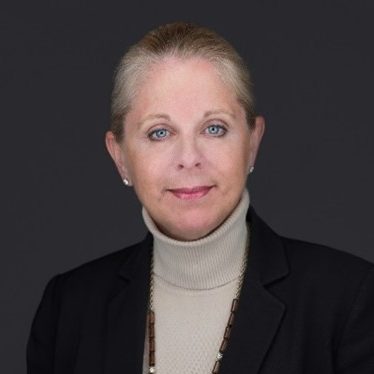
Judith Cassel, Cannabis Law PA
Judith D. Cassel of Cannabis Law PA provides legal guidance to growers, processors, dispensaries, laboratories, physicians, certified medical education providers, state cannabis organizations, ancillary businesses, attorney bar associations and state agencies navigating the regulatory landscape of medical marijuana and hemp. Ms. Cassel assists clients in New York, New Jersey, Pennsylvania, Maryland, Ohio, Massachusetts, West Virginia, Illinois, Utah and Oklahoma.
Ms. Cassel has given presentations on medical marijuana and hemp in states across the Northeast including the Pennsylvania Bar Association and the Delaware Widener School of Law. She has been a panelist on medical marijuana issues for WITF’s SmartTalk Radio, the Opioid Epidemic: Law and Policy Program, Mother and Baby War on Opioids, All Matters FDA and the Pennsylvania Bar Institute where she focused on how medical marijuana may alleviate the opioid crisis. Ms. Cassel has authored numerous articles on medical marijuana, including most recently in The Pennsylvania Lawyer and Marijuana Ventures, and has been quoted in publications such as the Pittsburgh Post-Gazette, Philadelphia Inquirer and MJ Biz Daily. Ms. Cassel is an adjunct professor at the Widener School of Law teaching Medical Marijuana Law.
Ms. Cassel utilizes her law degree in conjunction with her MBA and years of corporate experience to assist medical marijuana clients with a myriad of issues including: entity formation, financing, contract negotiations, agency investigation responses, regulatory drafting, sales and leasing transactions and litigation. In her regulatory practice, Ms. Cassel has represented clients in applications, investigations, financing and litigation before state courts and administrative agencies. She has most recently taken on pro bono clients in the area of Section 8 Housing. Ms. Cassel believes that residents of Section 8 Housing should not have to choose between their medical marijuana and the roof over their heads.

Gwen Evenstad, G-Force Consulting
Gwen Evenstad has more than30 years of food safety, food labeling, regulatory and product development experience in the food industry. Prior to starting G-Force Food Consulting in 2018, she worked in the confectionery industry for 20 years in the areas of: confectionery-based product development, food and nutrition labeling, process optimization and food safety. She has successfully launched hundreds of products from bench top development to mass production scale-ups in several food categories.
Gwen obtained her Bachelor of Science degree in food science from the University of California-Davis and has her CFS (Certified Food Science) certification. She is active in AACT at the National level as Long-Range Planning Committee Chair, serves on the Program Committee for the AACT National Technical Seminar and is past chair and founder of the AACT Rocky Mountain Section. She received the AACT National Stroud Jordan Award in 2017.

Tessa Porter, Sprinkk
Panel Moderator
Tessa is the president and founder of Sprinkk, an Omaha, NE-based company focusing on confectionery process design and small scale contract manufacturing. Sprinkk is on a mission to expand opportunity and reduce manufacturing hurdles for both new products and new businesses nationwide. The Sprinkk scale-up process has been tested through the launch of Norma’s, a new natural fruit snack brand that Tessa developed in 2021 together with her grandmother, Norma. Additionally, Tessa uses Sprinkk to amplify the voice of women in STEM, introduce confectionery science to students and advocate for careers in the trades and manufacturing.
Prior to starting her own company, Tessa led at Ferrara Candy Company as the head of innovation and technology. Her background also includes managing contract manufacturing for Glanbia Performance Nutrition, innovating as a scientist and intern at The Hershey Company and consulting for multiple small- and mid-sized food and beverage companies. Tessa serves on the board of directors for The Confectionery Foundation, is a 2019 NCA Future Leader and is active on the American Association of Candy Technologists Education Committee. She has a master’s in food science from the University of Wisconsin-Madison and an MBA from the University of Nebraska-Lincoln. In her free time, you’ll find her in a yoga studio, hanging out with her family or chasing the wind around the world to go kitesurfing.

Shawn Houser-Fedor, The Hershey Company
Panelist
Shawn Houser-Fedor is senior director, chocolate and packaging research and development (R&D) for The Hershey Company. In this role, she is responsible for leading chocolate confectionery and snack cakes new product, package design and technology development.
She and her team partner closely with marketing, sales, engineering and supply chain to bring new products to the market. A few of her team’s recent new products include: Reese’s Big Cup with Pretzels, Reese’s and KitKat Thins, Reese’s Snack Cakes, KitKat Duos Mint and Dark Chocolate, Duos Mocha, KitKat Flavors- Key Lime Pie and Fruity Cereal, Reese’s Lovers and Ultimate Cup, Hershey’s Emoji Bar and Super Hero Bars, Hershey’s Strawberry Ice Cream Cone Kisses and the Better-For-You Chocolate Platform including Organic Hershey and Reese and Zero Sugar Products.
Shawn has worked for The Hershey Company for 25+ years and has held many positions during her career. Prior to working at The Hershey Company, Shawn worked in R&D for The Campbell Soup Company. She holds an MBA from The Pennsylvania State University and a B.S. in chemistry from Lebanon Valley College.
Shawn has served on the PMCA Board of Directors and Conference Program Committee over the past 10 years. She has been honored for her contributions to the industry and her community by multiple organizations including Lebanon Valley College (LVC), Women in Flavor and Fragrance Commerce (WFFC) and was a YWCA Woman of Excellence.
Shawn lives with her family in Palmyra, PA. When she isn’t working, she enjoys traveling and spending time at the beach with her husband, six children, four grandchildren and extended family during the summer and home renovation projects during the winter months.
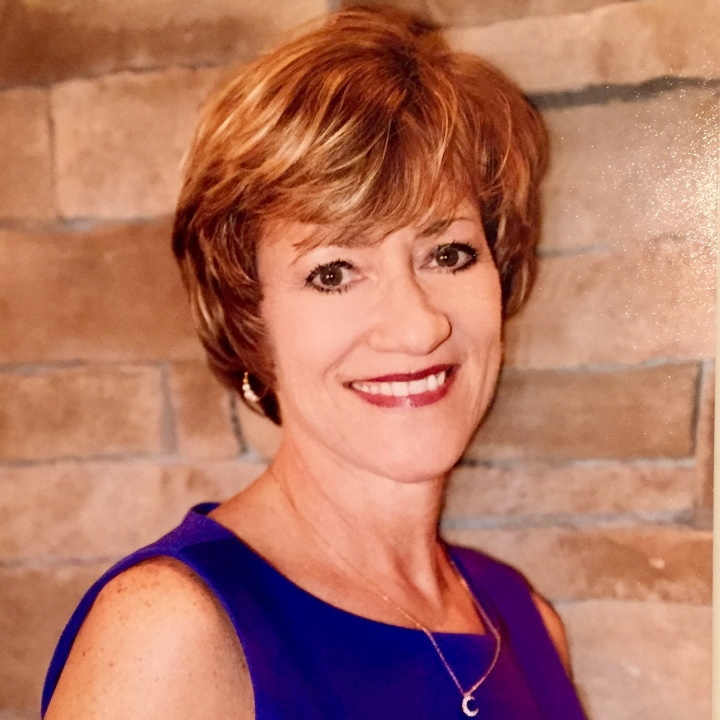
Marlene Stauffer, Blommer Chocolate Company
Panelist
Marlene Stauffer graduated from The Pennsylvania State University with a food science degree in the College of Agriculture. She has been with Blommer Chocolate Company since 1982. Her role is in regulatory compliance, regional quality assurance and managing sustainability programs. She also offers support for all aspects of food safety and quality, from raw materials, manufacturing, quality systems and product development to technical assistance for customers. Certifications include FSPCA Preventive Controls for Human Food PCQI, Internal Auditor by SAI Global and Advanced International HACCP Alliance. Marlene has been an instructor at several NCA, PMCA and university classes and spoken at PMCA, RCI, AACT, BCMA, FCIA, CMAA and CASA events.
Marlene is a member of PMCA’s Production Conference Program, Education and Marketing committees. She is also an active member of the Institute of Food Technologists, American Association of Candy Technologists, the NCA Chocolate and Regulatory and Health and Nutrition Committee, board member of FARRP (Food Allergy Resource and Research Program), Cocoa Merchants Regulatory Committee and a member of the Pennsylvania Ag Council. She is a past recipient of the Marie Kelso and Stroud Jordan awards as well as past PMCA president and board chair.

Dr. Maya Warren, SMiZE Cream
Panelist
Dr. Maya Warren is an ice cream scientist with a PhD (UW-Madison) in food science, specializing in the “microstructure, sensorial, and behavioral properties” of frozen aerated desserts. She oversees research and development for SMiZE Cream, as the official SMiZE Cream Ice Cream Scientist. SMiZE Cream is the super-premium ice cream brand and brain-child of Supermodel, Superbusinesswoman and Super Ice Cream Connoisseur Tyra Banks. Dr. Maya works side-by-side with Banks to perfect ice cream formulations, develop/create new flavors and inspire others through their shared love of ice cream!
Dr. Maya is often recognized as part of the winning duo (#SweetScientists) from the twenty-fifth season of the Emmy Award-winning reality show, The Amazing Race (alongside her friend and former lab mate, Dr. Amy DeJong). A personal passion of Dr. Maya is her commitment to giving back to others. She co-founded Ice Cream for Change (icecreamforchange.org) – a platform of ice cream makers/lovers advocating for social change and civic action, alongside Miss Mona Lipson. In her free time, Dr. Maya loves mentoring young people, staying active, traveling the globe and impacting all those she meets with her energetic love of life and ice cream!
Thriving in Today’s World: Cross-Functional Panel & Roundtables

Mark Kline, The Hershey Company
Moderator
Mark Kline has worked at Hershey’s for nine years. He is currently a senior manager in the Global Commodities team responsible for procurement of peanuts, almonds and the company’s energy needs which includes electricity, natural gas, diesel, water and renewable energy. Mark also worked in R&D at Hershey’s as a nut technical expert and on chocolate innovation projects. Prior to joining Hershey, Mark worked at Mars for six years in R&D as their nut technical expert.
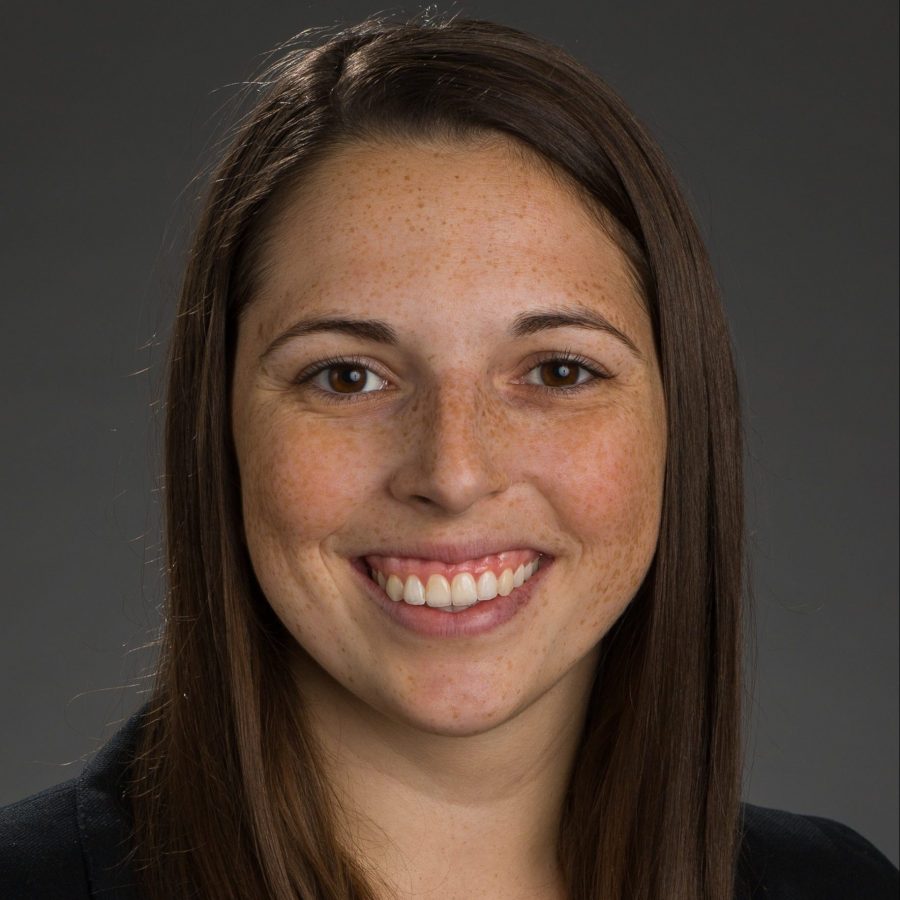
Monica Caparosa, Ferrero
Panelist – R&D
Monica Caparosa is a senior product development scientist at Ferrero working on the Cookies, Cones & Crust team. Since joining Ferrara Candy Company & Ferrero, Monica’s focus has been on growth of the Mother’s Circus Animal brand and the relaunch of Famous Amos Wonders from the World. Prior to working for Ferrero, she worked for numerous confectionery companies on internships growing her knowledge in chocolate and confectionary Coatings, including Blommer Chocolate Company, Lindt & Sprüngli USA and The Hershey Company.
Monica is a graduate of the University of Wisconsin-Madison, where she earned a M.S. in food science under Rich Hartel. Her research focused on characterizing lecithin use in chocolate. Monica graduated from Penn State University with a B.S. in food science and a minor in international agriculture. During her time as an undergraduate and graduate student, she completed numerous internships across the food industry to gain exposure and learn. Monica was an active student during her undergraduate and graduate years with PMCA, attending the conference for three years thanks to the sponsorship of the PMCA Student Outreach Program. Monica now serves as a committee member for the PMCA Student Outreach Program and serves on the Marketing Committee for AACT.
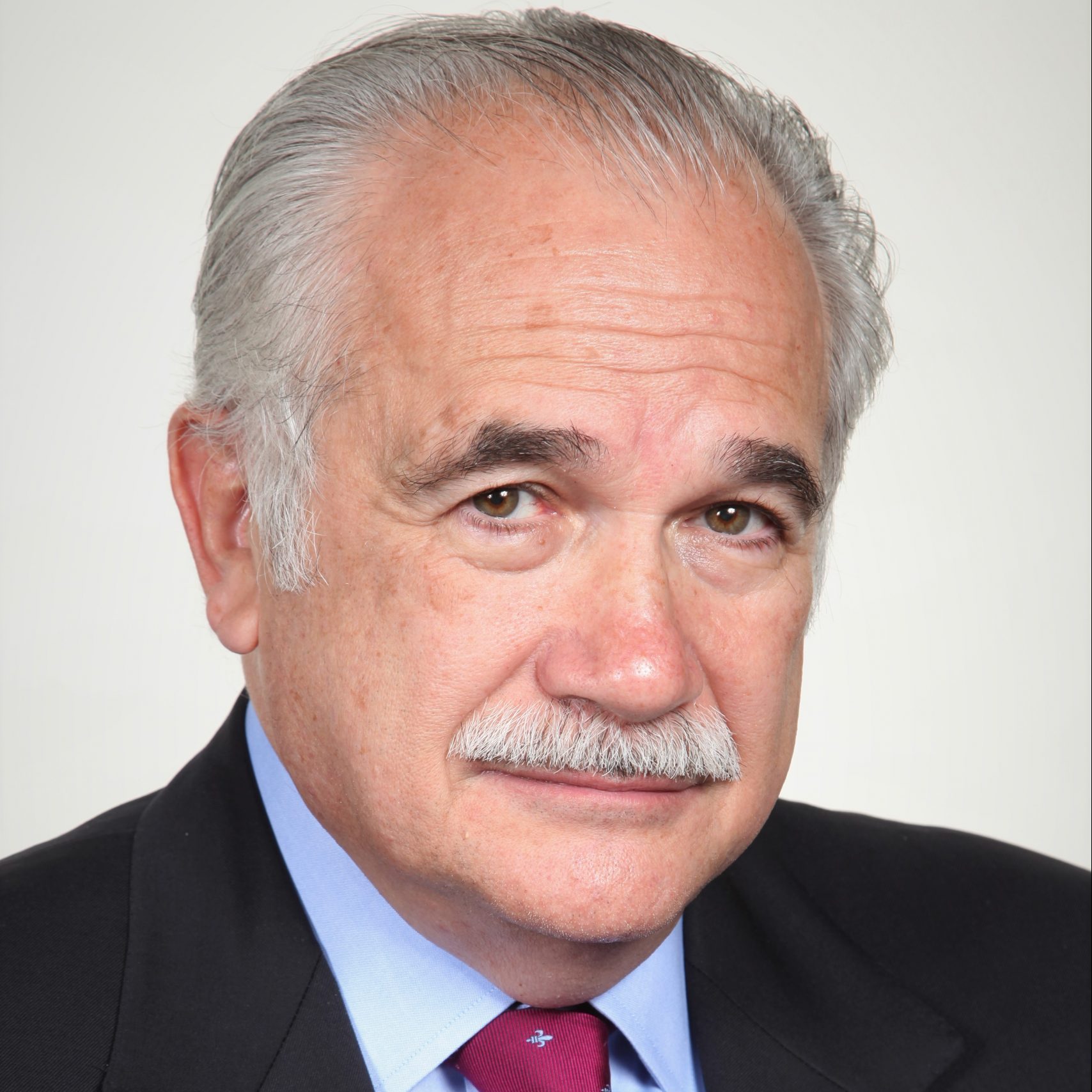
Jorge Farber, The Madelaine Chocolate Company
Panelist – Holistic Small Business
A native of Buenos Aires, Jorge Farber graduated from the City College of New York where he graduated and later received his Ph.D. in psychology from the City University of New York. He earned a Phi Beta Kappa Award in science. After post-doctoral research positions and seven years as an assistant professor at Southwestern Medical School in Dallas, Jorge joined the candy industry in 1984 as plant manager at Madelaine Chocolate Novelties, Inc., which was owned by his father-in-law, Henry Kaye.
In 1989, Jorge rose to vice president and COO and became president of the company in 2000. During his tenure at Madelaine, the company has become the largest private employer in Rockaway, New York.
From his leadership position at Madelaine, Jorge navigated the intense aftermath of Hurricane Sandy when it hit Madelaine in 2012. What he learned from that experience informed his company’s reaction to Covid-19.

Andrew Hartman, Wolfgang Confectioners
Panelist – Manufacturing
Andrew Hartman is a food manufacturing professional with more than 19 years of progressive experience in production facilities. Over the past 16 years, his responsibilities have included plant management, capital project management, cost reductions through applied solutions and maintenance team management.
Andrew is currently senior director of engineering at Wolfgang Confectioners in York, PA. In this role, he leads an engineering team consisting of project engineers, a project manager and process and packaging consultants. Prior to this position, he worked as plant manager for The Warrell Corporation, where he led a team of up to 175 people in a dynamic, flexible contract manufacturing facility operating on a three-shift schedule.
Andrew graduated from Virginia Polytechnic Institute and State University with a BS in mechanical engineering and has completed the NCA Residency Course in Confectionery Technology.

Thomas Readinger, J.B. Hunt Transport Services
Panelist – Supply Chain Logistics
Tom Readinger is currently employed by J.B. Hunt Transport and lives in the Philadelphia metro area. He has been with the company for nine years and has held roles in both dedicated operations and business development. Prior to J.B. Hunt Transport he attended Temple University for his undergraduate degree in entrepreneurship and strategic management and is currently pursuing his MBA at LaSalle University.
In his current role as a business development executive, he is responsible for the engineering, design and implementation of dedicated transportation and supply chain solutions for a diverse client base (retail, food processing, manufacturing, e-commerce) in the Northeast and Mid-Atlantic regions.

